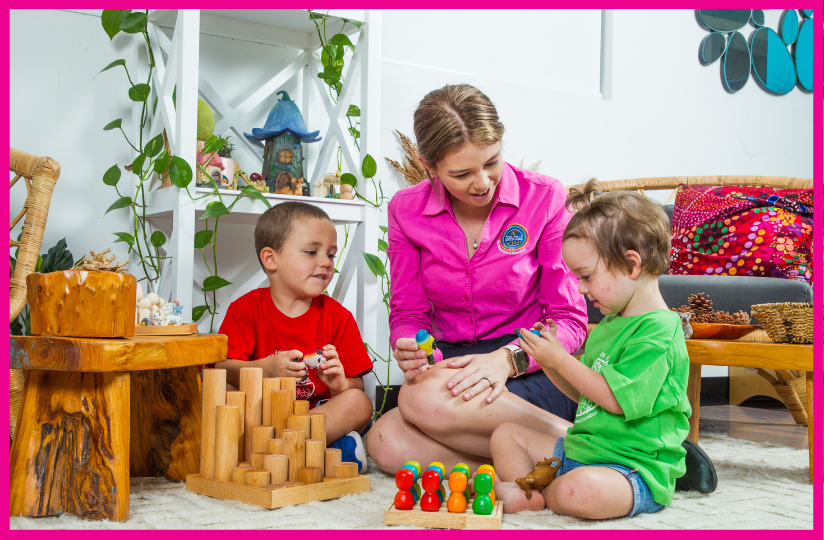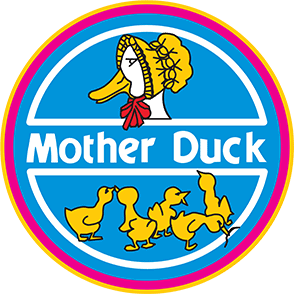
How are children’s rights are protected in Australia and most importantly at your child’s Mother Duck Early Childhood Service
The first 2000 days: the opportunity of a lifetime
The first 2000 days between conception and the start of primary school are a critical time in a child’s life that is vital for a child’s development, physically, mentally and socially. Children’s brains are influenced by both their genes and their environment. Babies are born ready to learn, with more than one million neural connections forming every second during the first few years of life. The early years are vitally important, as how the brain grows is strongly influenced by what’s happening in a child’s environment and their interactions with the people around them.
We all want our children to be happy and healthy and to succeed in whatever they choose to do in life. It is, therefore, our duty to instil in children the values of independence and self-sufficiency as some of the most valuable lessons they can learn. To do this, children need opportunities to play, explore, be curious and creative.
Did you know? The Convention on the Rights of the Child is an international human rights agreement (also known as a human rights treaty) that outlines the specific rights that children and young people can claim. In 1990 Australia ratified the Convention, therefore committing to ensuring that all children in Australia enjoy the rights set out in the treaty.
Some of the rights that are contained in the Convention include:
- the right to be treated fairly
- the right to have a say about decisions affecting you
- the right to live and grow up healthy
- the right to be safe no matter where you are
- the right to get an education
- the right to play and have fun!
To make sure that nations are upholding their responsibilities to children under the Convention, the United Nations also created the Committee on the Rights of the Child. The Committee is a group of 18 independent experts who review the performance of countries that have signed the Convention every 5 years.
Interestingly only one country in the United Nations has not ratified the Convention on the Rights of the Child – the United States of America.
A simplified version of the United Nations Convention on the Rights of the Child
Mother Duck Foundational Practices and Your Child
At Mother Duck, all our guiding documents align with the Convention on the Rights of the Child. Alongside The Philosophy, Ethics, and Social Responsibility of Mother Duck Child Care and Kindergarten document sits our Mother Duck Foundational Practices. This document details six Mother Duck Foundational Practices that guide educators’ everyday practice, the reasons why and what is so important about each practice. I invite you to have a read and next time you drop off or collect your child from your Mother Duck service and keep an eye or ear out for one or more of these practices in action –
- Spending quality time with children
- Demonstrates to the children that what they’re doing is important and that they are valued.
- Nothing without the child
- Involving children in all aspects of the day building skills of responsibility. independence and perseverance.
- It strengthens children’s belief of their capability
- Listening with intent
- This upholds the rights of the child in children having a voice in matters that concern them.
- It shows children that what they think and say are important and significant.
- Children’s voices form curriculum decisions.
- Respecting children’s rights
- Children should be respected in the same way as adults are.
- Children have rights in all matters that involve them.
- Not interrupting children
- Children need large blocks of uninterrupted play. This allows children to further develop their ideas and thinking supporting their explorations and concentration through engaging in sustained play.
- Slowing down
- This is important as it eliminates the rush and possibility of anxiety.
- Slowing down demonstrates the importance to children in taking their time, focusing and embracing each movement as it comes.
In support of these practices is growing evidence that children’s exposure to quality early childhood education assists children to meet healthy early childhood development milestones equipped with the social, cognitive and emotional skills they need to help them to continue learning and improve their school readiness (Melhuish 2012; OECD 2017; Warren et al. 2018). We know that children who arrive at school ‘ready’ are more likely to do well in future years – https://www.aihw.gov.au/reports/children-youth/australias-children/contents/education/transition-primary-school
The Australian Government views ‘increasing children’s learning potential’ as a community priority and have developed a website resource that holds a vast selection of information links covering topics that are designed to help parents and guardians support their child’s learning from birth to the high school years. Topics include, but are not limited to, ‘Bonding With Your Baby’, ‘Any Time Can Be Learning Time’, ‘Learning Lunchboxes’, ‘Up, Down, Left or Right’ and ‘Hands on with Maths’.
Talking about learning potential, I encourage you to explore and subscribe to this easy-to-use Australian Government Learning Potential website that aims to help you support your child’s learning. This site offers two easy search entries:
1) Explore by Age Level, and
2) Explore by Toolkit
We at Mother Duck are committed to upholding the rights of all children and recognise each child’s family as their first and most important social and cultural community. Let’s together value the importance of promoting children’s natural desire for learning through playful curiosity, inquiry and wonder which in turn nurtures each child’s sense of well-being, identity, self-worth and joy.




